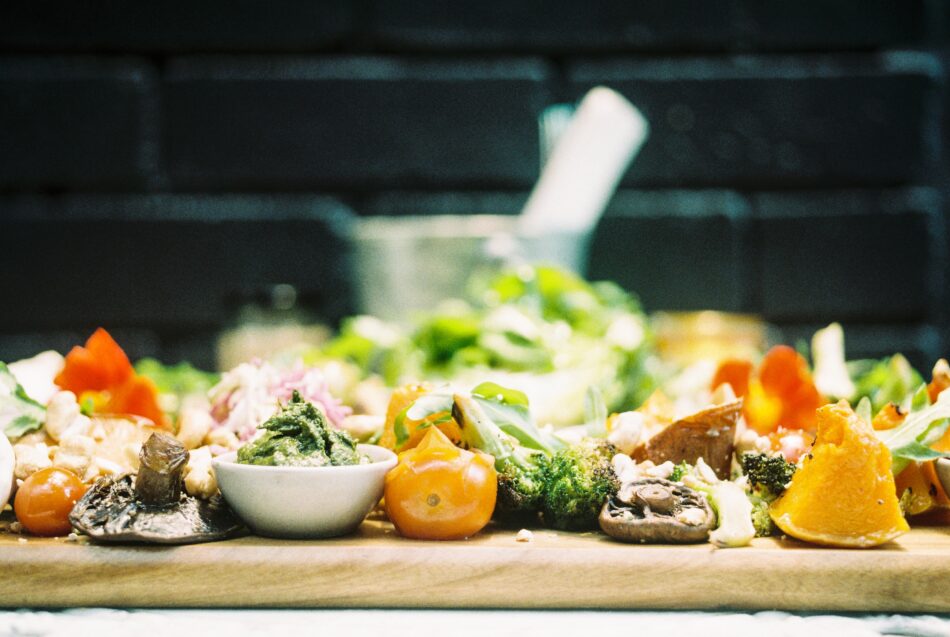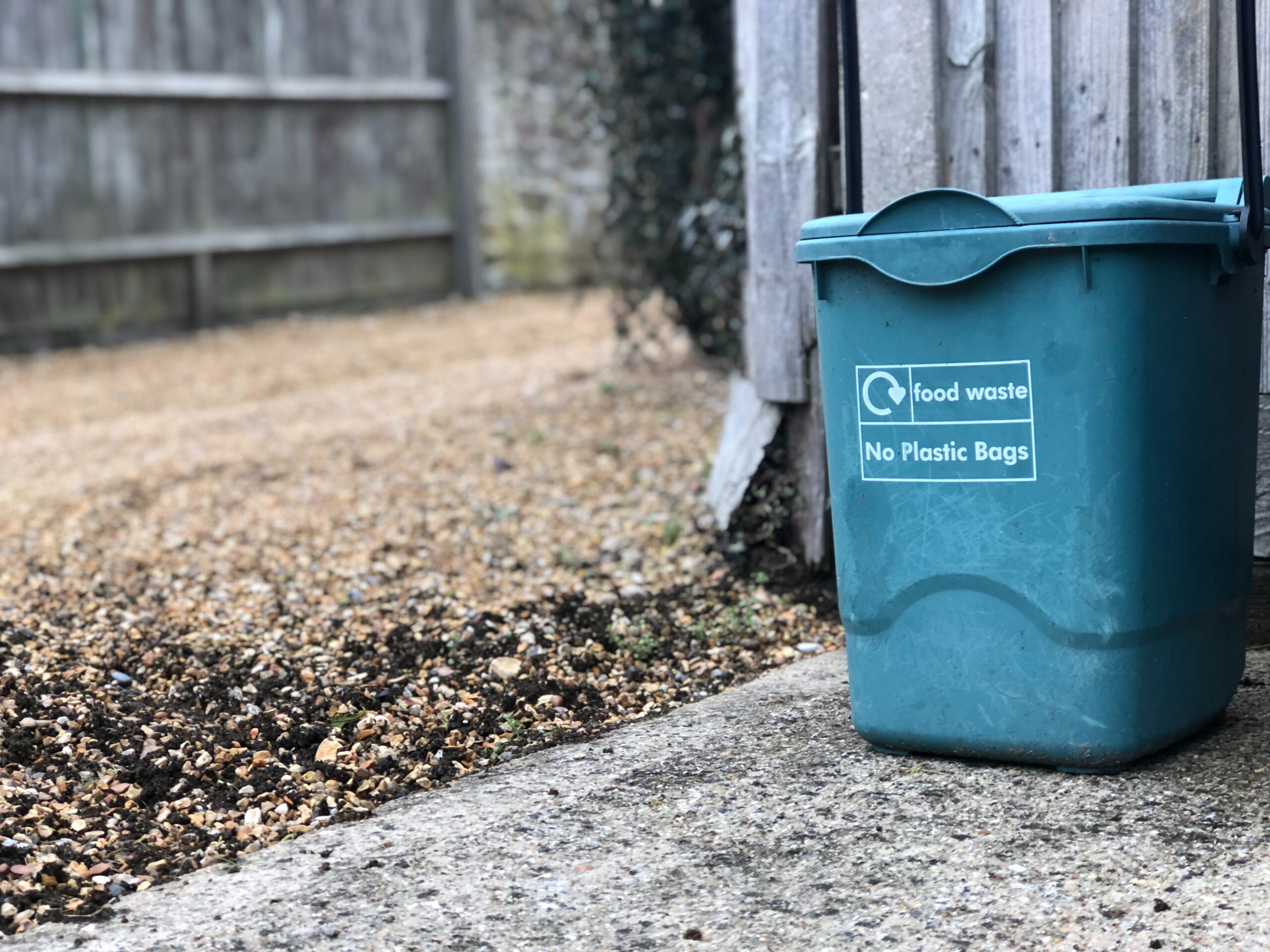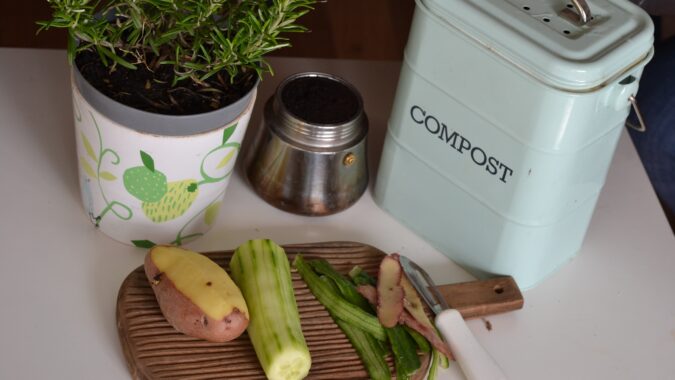
What Happens to Food Waste?
Restaurants, cafes, hotels, catering companies, supermarkets, and households create mountains of waste food. Around 9.5 million tons of food waste is thrown out in the UK every year. But where does it go? Normally what happens to food waste in the UK is that it’s turned into compost, fertiliser, or used to generate energy.
One of the best things to do with any food waste you produce at home is to add it to a compost pile. For businesses, this isn’t always an option. Using a dedicated food waste bin ensures it will be recycled and reused rather than go to landfill with your general waste – but how does this happen?
Find out what happens to food waste after you throw it away in this guide.
What food waste
can you recycle?
You can recycle any uneaten food – either raw or cooked – in a food waste bin. Common types of food waste you can send for recycling include:
- Dairy products
- Meat and bones (including fish, fishbones, and shells)
- Fruit and vegetables (including peelings)
- Pasta, rice, couscous, and noodles
- Tea bags and coffee grounds
- Pet food
However, you cannot recycle the following items in a food waste bin:
- Food packaging
- Liquids – such as milk, orange juice, and soft drinks
- Oil and liquid fats
Instead, use specific bins and containers to recycle packaging and sustainably get rid of any waste oil and liquid waste.

What happens to
recycled food waste?
What happens to food waste sent for recycling differs from most other recycling processes – as the waste isn’t turned into new food or fresh materials. Instead, waste food is used to create fertiliser and biogas to generate energy. This is a form of recycling as the waste is reused, rather than left to rot in landfill.
When you use a dedicated food waste bin to store and dispose of your commercial food waste, it will be collected and sent for recycling in one of two ways.
Anaerobic digestion
Food waste releases methane gas, which is a powerful greenhouse gas that contributes to global warming and air pollution. However, when controlled it can be harnessed as an effective energy source. This is what happens when food waste is sent to an anaerobic digestion plant.
Waste food is placed in an anaerobic digestor, where microorganisms break it down before it’s heated within an enclosed system. Methane and carbon dioxide released create a biogas that’s collected and used to generate electricity, heat, or fuel. The remaining pulp left behind is a nutrient-rich digestate that’s used as a fertiliser.
One ton of food waste can generate 1200kwh of energy – while one kilogram of waste food can charge a mobile phone for 79 hours.
In-vessel composting
The other main option for what happens to food waste recycling is that it’s turned into natural fertiliser through in-vessel composting. This is essentially a sped-up version of home composting. Food waste may be mixed with garden waste or composted on its own, either way it’s first shredded and placed in a composting vessel.
Here it’s exposed to temperatures of up to 70°C that speeds up the decomposing process to take between four and six weeks, while also killing off any harmful microbes. This creates fertiliser ready to spread on farmland to grow new crops, rejuvenate topsoil, and create green spaces in city centres or urban areas.
It may also be left outside for between one and three months, regularly turned and checked for quality, so it can then be used as soil conditioner.
What happens to
household food waste?
If you throw food waste away with your household waste it will likely go to landfill. Some general waste is sent for incineration, so your household food waste may be used to generate energy. However, waste food is made up of around 70% water, which takes more energy to burn and is far less efficient than composting or anaerobic digestion.
The best thing to do with your domestic food waste is add it to a compost pile. If you don’t have one you could store any waste food in a separate bin and offer it to a neighbour, friend, or family member who does. It’s also worth seeing if a local allotment or farm accept food waste donations for their own composting.

What happens to
food waste in landfills?
Food waste in landfill decomposes and rots, breaking down like it does when going through anaerobic digestion. However, in landfill the methane produced as waste food breaks down is released into the atmosphere, rather than being controlled as an energy source. This is a greenhouse gas that’s around 25 times more powerful than carbon dioxide.
Methane traps heat within the earth’s atmosphere that helps contribute significantly to global warming. If all the food waste the UK produces every year went to landfill it could create 36 million tons of greenhouse gas emissions – causing significant damage to the environment. Therefore, disposing of waste food responsibly and avoiding sending it to landfill helps protect our planet.
How to recycle
food waste
Arrange free delivery of food waste bins to your business to store any leftover food from the kitchen or staff canteen. Organise collection on a daily, weekly, or fortnightly schedule. Our licensed waste carriers will remove your food waste bins and transport them to a nearby recycling facility for anaerobic digestion or composting – avoiding landfill.
At home, use a separate food waste bin in your kitchen to separate items from your general waste and household recycling. When it’s full, arrange collection or empty this onto your own compost pile in your garden. You could also take it to a nearby farm, allotment, or anywhere else that accepts food waste donations.
Contact us online or call 0800 211 8390 to get a free quote and arrange food waste collection anywhere in the UK.
Learn more about
food waste
Get a free quote for food waste recycling
Get a fast FREE quote for your food waste collection
- Free quote within 1 hr
- Any type of waste food
- FREE bins and delivery
- We cover all of the UK